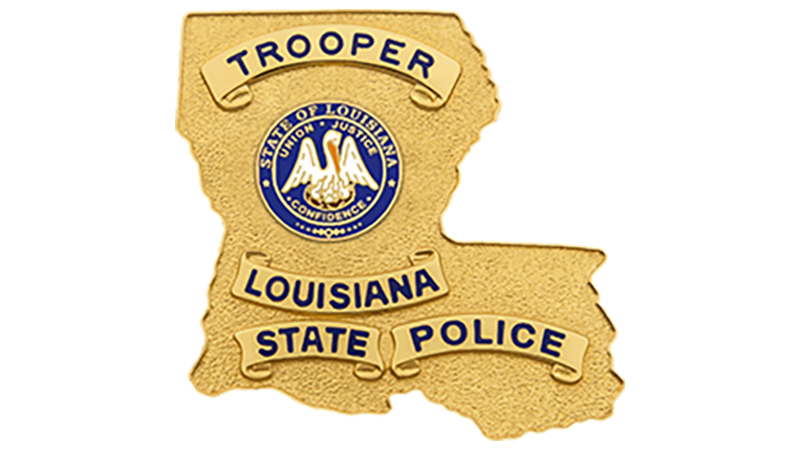Community aids seniors with utility bills
Published 12:00 am Monday, July 29, 2002
By MELISSA PEACOCK
RESERVE – With temperatures soaring into the 90s and heat indexes regularly climbing into the 100s, area community groups are concerned about local senior citizens without air conditioning or unable to afford high energy bills resulting from cooling units.
According to Barbara Gralapp, executive director of the St. John Senior Center, the average income for a senior in St. John the Baptist Parish is $767 per month, an income below the poverty level set by the federal government.
“There are many area seniors that cannot afford to run air conditioners during the summer,” Gralapp said. “There is a real danger of heat stroke just staying in their homes without air.
“What’s bad is the homebound and the sick who don’t have air. A fan just does not help in this weather.”
Gralapp said some business and community efforts have made the summer heat more bearable for local seniors.
In addition to receiving donations of air conditioners from community businesses, the Council on Aging receives funds from area businesses that help seniors with electric bills, Gralapp said.
Entergy and the Council on Aging are working together through “Helping Hands” to provide aid to local seniors.
“We have programs within Entergy to add to that fund,” said Tammy Frank, Entergy customer service manager. “We have annual employee drives. Entergy matches funds – $2 for every $1 donated. In the Reserve office, we have 90 percent of employees involved.”
But, Frank said, Entergy customers are responsible for the largest amount of the funds donated to this cause.
“We have two customer campaigns a year,” Frank said. “We ask our customers to add a dollar to their bill (in bill inserts). The funds go straight into a trust fund (for the program).”
According to Frank, senior citizens must meet certain criteria in order to qualify for assistance. Seniors applying for assistance must be 60 years of age or older and fill out forms that show monthly expenditures exceeding income.
“They are eligible to receive help three times during the calendar year,” Frank said.
Recipients can receive up to $100 of aid, with no more than $300 in aid received during the year.
“It’s because we do not want anyone to become too dependent,” Frank said about the restrictions. “It is for emergency situations.”
Entergy also offers programs like “Pick-a-Date,” which allows residents to choose what day they receive a bill, and average billing, which bases payments on a 12-month average of electric expenses.
Frank said the programs can help local seniors maintain monthly budgets and monitor spending.
Other Entergy programs include Charitable Foundation Grants and seminars that teach area seniors how to conserve energy, reduce power bills and budget.
St. John’s Community of Action and Ministry of Care also provide assistance to seniors in need, Gralapp said.
St. John Community of Action, a social service organization funded by the parish, state and federal governments, offers a variety of programs for low income households, including local seniors, said Elois Joseph of Community of Action.
Community of Action was recognized by the state as a community action agency in the 1980s, but have been providing emergency relief since 1973. The organization’s Low Income Home Energy Assistance Program is specifically designed to provide financial assistance with utility bills for low income households with elderly, handicapped residents and children.
To be considered for LIHEAP, applicants must bring monthly bills, proof of income and an identification card to the Community of Action office, Joseph said.
Applicants must also show a significant financial need (below poverty level income) to be eligible.
According to Community of Action documents, LIHEAP has assisted 173 persons 60 years and older with utilities between January 2002 and July 2002.
Like Community of Action, the St. John Ministry of Care is a local organization that provides emergency relief in short-term crisis situations, said volunteer Donald Haywood.
“The Ministry of Care is there to help if residents need emergency help,” Haywood said. “We are a last resort. Sometimes we can help and sometimes we can’t.”
To apply for utility assistance from the Ministry of Care, applicants must have had a disconnect and must be able to provide volunteers with personal and financial information.
“We only help with that month’s bill,” Haywood said. “We don’t pay the whole bill.”
When an applicant’s request for help is approved, Ministry of Care mails a contribution directly to the utility owed. Applicants can only receive aid with bills once every two years.
The organization, formed in 1985, also assists with emergency food, rent, mortgage, utilities, medicines and referrals to other agencies.
Volunteers ask that only those in real emergency apply.





